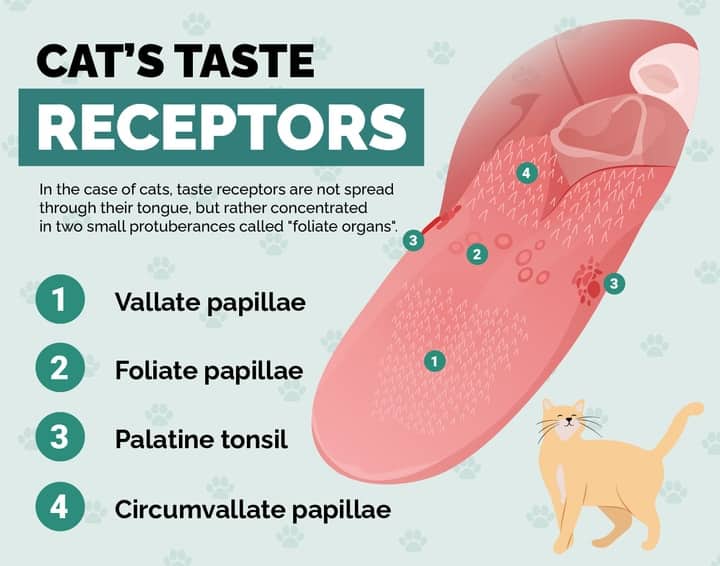Nearly all creatures love the deliciously sweet flavor of candy. You might want to share a piece of your candy with your beloved feline as a result. Although your heart is in the right place, you should not feed any candy to your cat.
Candy is not healthy for cats because of its high amount of sugar, additives, and preservatives. Not to mention, most experts believe that cats cannot even taste the flavor of sugar, which means your cat will not enjoy the flavor of candy either. Do yourself and your cat a favor by keeping the candy away. Keep reading to learn more about why cats should not eat candy and why they can’t taste it in the first place.
Can Cats Eat Candy?
Technically speaking, cats can eat candy. By that, we mean that your cat is not likely to die from toxicity or an allergic reaction just from eating a small piece of candy. Your cat will likely not react at all after eating one or two pieces, but that doesn’t mean they should.

Is Candy Healthy for Cats?
Even though your cat can technically eat candy does not mean you should feed candy to your cat. Just as candy is not particularly healthy for us, it is not healthy for cats either. In fact, candy is even less healthy for cats than it is for us.
Since humans need both carbs and protein to survive, sugar is not outright bad for us. Humans actually need a little bit of sugar in small quantities to survive. The same is not necessarily true of cats. Cats are obligate carnivores, which means they need a diet made entirely of animal food sources.
Besides candy representing a choking hazard for your cat, if your cat eats a lot of sugar, it may eventually experience several negative health problems, including gastrointestinal distress and weight gain, leading to obesity. Obese cats are more likely to develop diabetes, cancer, arthritis, and other similar inflammatory conditions. Needless to say, candy is not healthy for cats in any way.
Should I Feed My Cat Candy?
Because candy is so unhealthy for cats, you should not feed candy to your cat. Even so, you might be wondering if one piece of candy is really that bad. No, one piece of candy is not that bad, but it is pointless to feed candy to your cat. On top of candy being unhealthy, cats cannot even taste the sweet flavor.
Because cats cannot even enjoy the flavor of candy, there’s no point in wasting the sweets or forcing your cat to eat the unnecessary calories. Simply put, don’t feed candy to your cats. It isn’t healthy for your cat, and your cat will not enjoy it.

Why Can’t Cats Taste Sugar?
The fact that cats cannot taste sweetness or sugar is actually a unique occurrence. Nearly all mammals can taste sugar, including rodents, dogs, and humans. The same cannot be said of cats.
Teams of scientists have long believed that cats could not taste sugar, but this belief has recently been confirmed. Some studies have found that cats do not have the taste buds required to taste sweetness. So, cats don’t taste anything when they eat something sweet.
It is unclear why cats never developed the taste buds for sugar or lost them. Scientists theorize that as obligate carnivores, they never needed those taste buds. In other words, the evolution of cats has never depended on their ability to taste sugar.

What Should I Feed My Cat Instead?
Because candy is unhealthy for cats and they can’t even enjoy its flavor, it’s best to select alternative treats for your furry friend. Feline treats will be packed full of meat and often fat, which are flavors that your cat desires.
For example, freeze-dried treats are some of the best treats for your cat. Freeze-dried treats contain very few additives and preservatives, but they still taste delicious. You shouldn’t have any problems finding freeze-dried treats at your local pet store.
You don’t even have to purchase specialty treats to indulge your cat. If you are boiling chicken or some other meat, you can toss them a bit of that as well. The cat will enjoy that treat much more than they would candy, and it is actually healthy and nutritious for their bodies.
What Should I Do if My Cat Ate Candy?
If your cat has eaten a bit of candy, there’s no need to panic. Even though candy is unhealthy for cats, you do not need to call your vet or emergency service. Pick up any candy that remains to ensure your cat does not eat anymore.
Additionally, pay attention to your cat’s behavior. Although the candy itself should not harm the cat, the cat may have eaten the wrapper or something else that could harm their digestion. Watch out for any signs of nausea or discomfort. If your cat shows they are having trouble, contact your vet for assistance.

Conclusion
Once again, you shouldn’t feed your cat candy. The sugar within candy is not healthy for cats, even in small quantities. Not to mention, cats cannot even enjoy the flavor of the candy since they do not have the taste buds required to taste sugar.
You don’t need to panic if your cat steals a bit of candy, though. Just don’t feed candy as a treat. Instead, select meat-based treats that your cat will enjoy whenever you want to show your cat a little bit of love.
Featured Image Credit: Daria-Yakovleva, Pixabay












